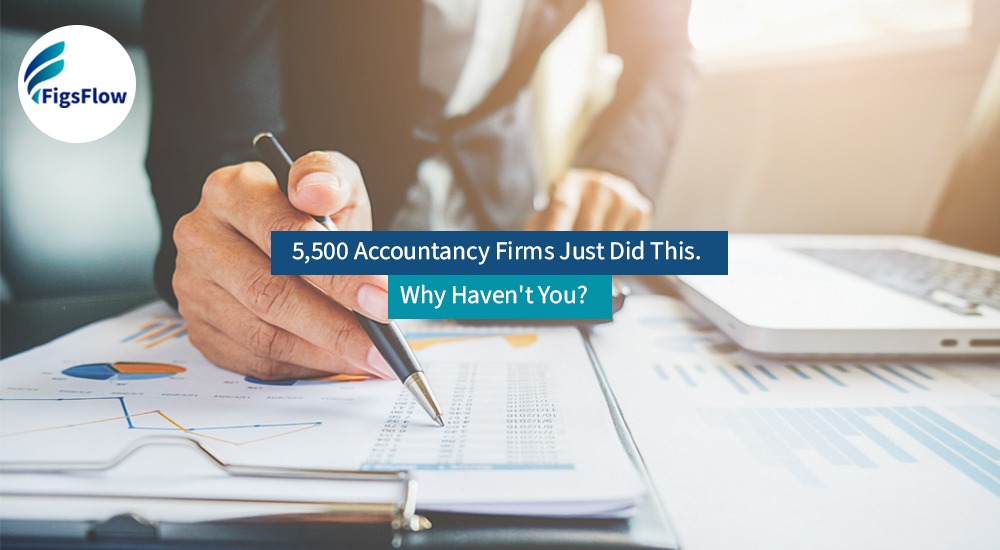A quiet but major shift has taken place at Companies House, and it affects nearly every accountancy firm in the UK.
Under the Economic Crime and Corporate Transparency Act (ECCTA), firms that file documents on behalf of clients or want to carry out identity verification (IDV) will need to register as Authorised Corporate Service Providers (ACSPs). While the deadlines are still a few months away, registration has already opened.
This change affects everyone handling company filings or client onboarding, irrespective of whether you’re a sole trader or a small practice. And being late or getting it wrong can cost your firm time, clients and credibility.
What Is an ACSP & Why Does It Matter
An ACSP is a firm that is authorised to carry out identity verification or file certain documents with Companies House on behalf of clients. This includes confirmation statements, incorporation documents and other statutory filings.
Until now, anyone could file company documents for clients using their agent credentials. That’s about to change.
From late 2025, only registered ACSPs will be able to conduct identity verification. By 2026, ACSP registration will be required for all agents filing on behalf of clients. So even if you’re not offering identity verification, you will eventually need to register just to continue doing what you already do.
But here’s where it gets urgent: if you want to help clients with identity verification now, you need to register as an ACSP immediately.
IDV became voluntary in April 2025 and will become mandatory for all directors and people with significant control (PSCs) from late 2025. By late 2026, no one will be able to appear on the public register unless their identity has been verified.
Companies House now has more power to reject suspicious filings, and it’s already doing so. Over 14,000 filings have been blocked since the new rules began rolling out.
How to Register as an ACSP (and Common Pitfalls)
Registering as an ACSP is fairly straightforward. The process begins with proving that your firm is supervised by a UK anti-money laundering (AML) body like ICAEW, ACCA, or CIOT.
Just being a member of a professional body isn’t enough. You must be AML-supervised as a firm. If you’re not sure, check your annual return.
Once you have confirmed that your firm is supervised, you will need to provide accurate information during the ACSP registration.
Here’s what you need to submit.
- The exact firm’s name recorded by your AML supervisor
- Your firm’s AML reference number (starts with C0 or, in rare cases, A0)
- Your firm’s registered address and email
- Your company number (if you’re a limited company)
- £55 registration fee
Additionally, you’re also required to verify the identity of the person submitting the application (e.g., director or sole trader).
Do not submit:
- Personal ICAEW or ACCA member numbers
- Trading names
- Location codes starting with L0
Make sure everything you enter matches what’s on record with your AML supervisor. If it doesn’t match, Companies House can’t verify your application, and it will get rejected. Almost 1 in 5 applications are rejected, often because the information didn’t match up with records from AML supervisors.
Once verified, approval typically takes under two minutes but may vary depending on accuracy and volume. Once approved, Companies House will create an online ACSP account. You will receive a reference number starting with ‘AP’ and can add users to the account.
Identity Verification: What's Changing & When
IDV is the real engine behind this reform. From autumn/winter 2025, any company submitting a confirmation statement must ensure that all its directors and PSCs are identity-verified. If even one person hasn’t completed IDV and received a personal code, the statement will be rejected.
There are two ways to verify:
- Directly through Companies House via the One Login system
Once verified, the individual receives a unique personal code. This will be required for all future filings.
Here’s the kicker: If your client’s statement is due in December 2025 and one director hasn’t done IDV, the submission will fail. So, even if mandatory deadlines feel far off, clients should verify now to avoid delays later.
As a firm, you’ll also need to verify your directors and PSCs if you’re structured as a limited company or LLP. This is required even if you’re not offering IDV services to clients.
For most firms, offering IDV will not be essential. Many clients will verify directly through Companies House. But if you already have digital KYC processes in place and want to provide IDV in-house, becoming an ACSP early will help you support clients smoothly through this transition.
What You Should Do Next
The new compliance rules are not optional. And while not every firm needs to register as an ACSP immediately, almost every firm that files with Companies House will need to register by 2026. The earlier you prepare, the less likely you are to face delays or rejected filings.
So, check whether your firm is AML-supervised and has the correct reference numbers. Review your client list and identify who needs to complete identity verification before their next confirmation statement. Encourage those clients to act early to avoid complications later this year.
Also, make sure your own firm’s directors and PSCs are also verified if you operate as a limited company or LLP. And if you plan to offer IDV services to clients, start the ACSP registration process now.
Companies House is continuing to publish updates, webinars, and timelines. Keep an eye on those channels for firm deadlines. These changes are part of a wider regulatory shift. So, stay informed, stay compliant.
Additional Resources
Learn how to complete client ID verification: Discover the steps to efficiently complete client ID verification for ACSP registration.
Explore the top AML software options for accountants: A list of the best AML software solutions to help accountants and ACSPs maintain compliance.
Check out these HMRC-approved MTD tools: Find free HMRC-approved MTD software for accountants and tax agents to streamline your compliance processes.
Learn more about the Economic Crime and Corporate Transparency Act: Get the full details on the ECCTA and how it impacts ACSP registration.
Explore the Joint Money Laundering Steering Group guidance: Read the official JMLSG guidance to ensure your firm stays compliant with AML requirements.


